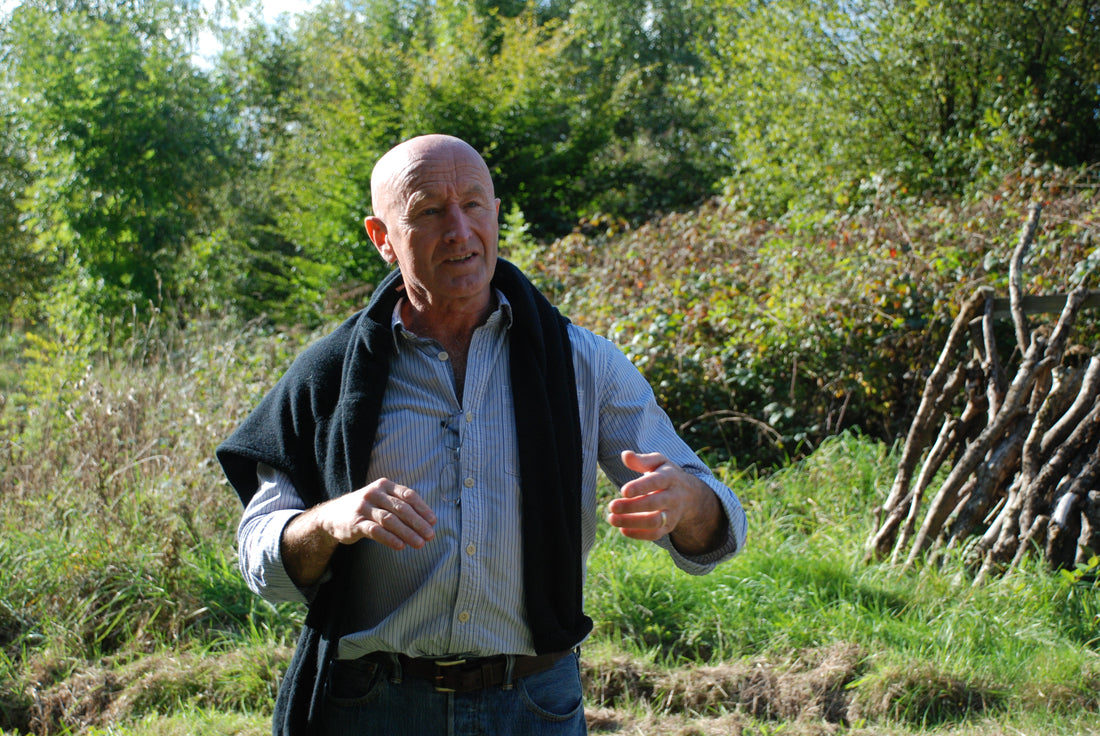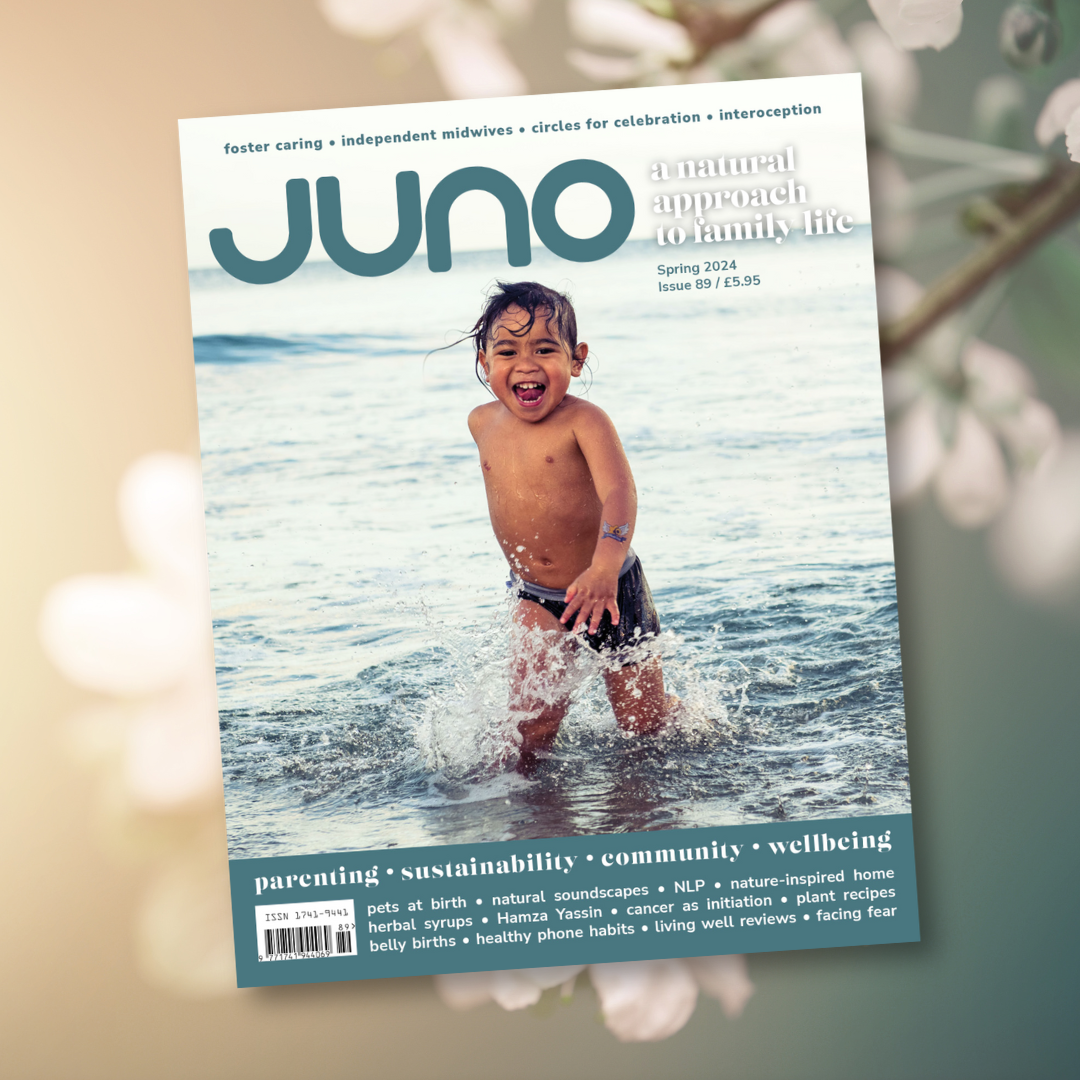There’s an elephant in the room, and its name is climate change. I often attempt to talk about the changing climate of our planet but don’t usually progress further than the mention of a trunk or an ear at most: it’s an upsetting topic for many of us, and it’s easier not to think about it. So, when I spoke to Mac Macartney, accomplished TEDx speaker, author and founder of Embercombe, I found it refreshing that he wasn’t afraid to address this pressing issue that many of us attempt to hide from.
Mac’s take on the issues we face is matter of-fact. “We’re faced with an existential crisis,” he tells me. The latest IPCC report gives us 12 years to make changes to prevent irreversible climate change, but many of us question whether this potential hope will make any difference, when years of dire warnings have proven insufficient. We’re all keen to talk about plastic pollution, which is certainly a serious issue, but we don’t want to admit that it pales in comparison to the reality of climate change. We need a habitable planet to live on, yet we are destroying it, and Mac isn’t the first to assert that we aren’t changing anything at the fundamental rate that’s required. He says: “We describe ourselves as rational beings, but evidence suggests we are entirely the opposite. For all our cleverness, wisdom seems beyond our reach. Underneath all of this is a society which is broadly being developed on principles which are all about using the Earth as if it’s at our disposal.”
For some time now, and in my column in this issue of JUNO, I’ve been questioning what can be done about the state of the planet when we are all so hooked on this unsustainable way of living. Mac partially blames “the model that we have around our economies, businesses, schooling, education and universities – the growth economy” and reminds me that nothing has changed, “even though WWF told us years ago that we are consuming at a rate that the Earth cannot replenish.” I ask him what he thinks the solution is, and am surprised to hear him talk of a philosophical approach. “For me, under this thing that we call sustainability there is a larger issue. It is a privilege to be on this Earth. We’ve lost reverence, a true sense of the word ‘sacred’. We are caught up in a story that is consuming ourselves.”
Can a shift in the way we think save the planet? Can philosophy like this be learnt? Do different mindsets explain why some of us address the elephant, and others hide from it? “Nature is the fountainhead from which all spirituality emerged,” Mac tells me: “All ancient Indigenous cultures derived their sense of the spiritual from the observation of nature, the beauty of life... [This is] the only place we know of in the universe that is painted with these colours that nature provided us with.” Certainly, philosophy is not at the core of our society in any way: if anything, we are encouraged to follow rather than question. Philosophy is neglected in schools, and frowned upon in a heyday of the arenas of maths and science. Whereas the Finnish schooling system puts philosophical questioning and reasoning at the forefront of its highly successful education system, Britain denies its value: those I know who study philosophy simply aren’t taken seriously.
Could a shift to bigger-picture thinking, to self-questioning, really save our planet? I mull over Mac’s words, and consider the TEDx talk I did earlier this year on how stargazing may help us to reconnect with the magic of nature and this wonderful planet that we call home, and I conclude that Mac and I are of the same mind. We do need to get to the root of the disconnect that has caused us to damage our planet so badly, and there may be different ways of doing this. For Mac, “It’s about being humble enough to address basic questions. What is the purpose of human life?” I wait to hear what he will say next. He pauses. “To care for all living things.”
Would every person who thinks about life philosophically come to this conclusion? Would we all suddenly begin to see things so simply and beautifully, like the great poets Rumi, Kahlil Gibran and their ilk? Often our histories have been marred with war and suffering, and amassing wealth is a high priority for most of us. Mac is hopeful. “Even though we are hunters, we have a sense of the gift,” he tells me. He points out all the images of animals and soft toy animals that we buy our children; how we know to celebrate other life, but then fail to carry this through into the way we treat animals and the natural world in day-to-day life. This is another example of the disconnection between what we believe and preach, and what we live by.
Mac believes that in order for us to change the way we think about ourselves and our place in the universe, it needs to be an integrated part of our schooling system: “We need to shift education to creating well-balanced young people who feel good about how they are.” That alone is not enough, though: “We all of us have to become activists. Ordinary good people observe, but never actually engage enough to inconvenience themselves. Parents are enormously powerful. We have to decide that we’re going to participate, and vigorously. Actively speaking, writing, advocating for a better education. We’ve got to make a noise and disturbance and insist on a new trajectory. We have been trained in conformity and fear about change. Our greatest challenge is time.” Can such change come about in a single generation? Maybe not, but it’s never too late to change our habits and pass this hard-earned knowledge on to younger generations.
How does one begin on this journey? Perhaps we are already on it: talk of mental health issues, yoga, meditation, mindfulness and wellness is much more common now than it was just a decade ago. Mac says that we must start with ourselves, by learning what our own gifts are: “That must be our work.” This may sound simplistic, and obvious, but so few of us do live by our passions. So many of us sacrifice our greatest joys in order to pay the bills.
This was a hard-earned lesson for Mac, and he is frank about his own journey: “I had no sense that I had any real value… I had multiple wake-up calls. I became a PE teacher, went AWOL for a decade, and realised that had to change. I dreamed of having a life that felt passionate and well lived. I realised I was intelligent but that it is only activated if the motivating emotional nature is there. I asked myself, what do I love?” The answer was already there: “Nature.” Mac trained as a gardener, but that still wasn’t enough: “I wanted to find the teachers I’d never had as a child.” This led him to Indigenous people, to 20 years of training with Native American people and learning their wisdom. “Embercombe is a result of that training – I wanted to create some kind of social enterprise that explores what it means to be human.”
This isn’t an easy task for any of us: we do have bills to pay and mouths to feed. Many of us can’t give up ‘the day job’. But maybe we can attempt to find the things that bring us joy, and bring them into our lives a little more each day, whether that means writing poetry, painting, swimming in the ocean or joining a choir. Maybe we already know that we need to do this, but have always lived in a society that values the pound over passion. Can we unlearn that feeling of selfishness that comes from following our own passions? If we are able to do so, we may be making the path for younger generations a little easier to tread.
Either way, it’s important to start asking ourselves the questions that we need to consider so that we can save our small planet. “Your life has meaning,” Mac says. “Ask yourself, what is it that I most deeply profoundly love? What are my most profound gifts? What are my most profound responsibilities?” Now, you may be asking what this has to do with climate change. Mac’s message is ultimately that a healthy heart and mind lead to a healthy planet. He tells me, “We do not betray deep love.” This theory certainly resonates with me. When we give from love, when we heal through finding our passions and joys, we can finally face the elephant in the room. This is what Mac has learnt in his 70 years on the planet, and I find it fascinating that without talking about an ear or a tail we seem to have looked the elephant full in the face. The question that remains is, who else will take this journey with us?
____
Mac Macartney is author of The Children’s Fire: Heart Song of a People, is published by Practical Inspiration Publishing. Zion Lights was the Contributing Editor of JUNO Magazine.
____
First published in issue 58 of JUNO. Accurate at the time this issue went to print.



